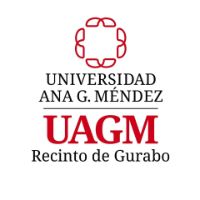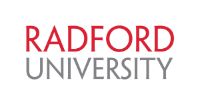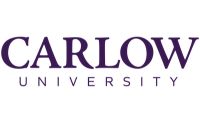Best APA-Accredited Counseling Psychology Psy.D. Programs for 2025
A counseling psychologist is a generalist provider of professional psychology services, according to the American Psychological Association (APA). To become one, you need a doctorate—either a Doctor of Psychology (Psy.D.) or Doctor of Philosophy (Ph.D.). The latter tends to be more research-based, while Psy.D. programs focus on coursework, practica, and internships designed specifically for those who plan on becoming clinicians.
The following counseling psychology Psy.D. programs are accredited by the APA, according to APA information as of February 2021, the most recent data available, and ranked by percentage of recent graduates obtaining psychologist licensure. You’ll learn about what each program entails as well as some highlights that make each program special. Learn more about how these programs made the list.
Universidad del Turabo (Gurabo, Puerto Rico)
The Psy.D. program at Universidad del Turabo is designed to train students in the central competencies of counseling psychology: consultation, assessment, psychotherapy, and supervision. The Psy.D. is a continuation of the school’s master’s in counseling psychology program. Instead of a doctoral dissertation, which the university reserves for Ph.D. programs, Psy.D. students will complete a doctoral project that reflects their development of skills for professional practice. The program offers five full-time internship positions, and candidates will be placed based on their strengths and merits after a lengthy interview process. All internships run 2,000 hours—at least 25% must include face-to-face contact with patients and clients—and require at least 40 hours of work per week.
Program Highlights
The university has partnerships with nine diverse facilities that serve as practicum and internship centers, which means students have a variety of options for their clinical experiences. The program offers all interns a stipend of $15,000 a year, 10 days of paid time off, and 15 paid federal and state holidays. All interns have access to their own desks and office space as well as associated tech and hardware, including computers, phones, office supplies, and office equipment. Other benefits include access to assessment and training materials and intervention manuals.
Radford University (Radford, Virginia)
The central focus of Radford University’s Psy.D. in counseling psychology program is on evidence-based practice as a cornerstone of psychology. It is designed for students interested in careers in mental health institutions and facilities—particularly those in rural areas—that require the direct application of psychological assessment, therapy, and counseling. The four-year program, which follows the practitioner-scholar model, emphasizes the application of research and clinical training and includes a 2,000-hour internship. It’s open only to applicants who already hold an accredited master’s degree in a field related to human services and who have completed counseling services face-to-face with clients. The program works with nine facilities through which students can complete practicum work. Practicum training includes 1,500 hours, 500 of which involve direct client contact. The fourth year is dedicated to the internship. The program is open only to full-time students and requires candidates to complete a dissertation.
Program Highlights
The central focus of Radford University’s Psy.D. in counseling psychology program is on rural mental health. It also emphasizes social justice and cultural diversity. Most students who are accepted into the program are granted tuition remission and are admitted into grant-funded fellowships or graduate assistantships. Students—93% of whom earn licenses after they graduate—also have opportunities to collaborate with faculty on research projects, authorships, and conference presentations.
University of St. Thomas (Minneapolis, Minnesota)
The 82-credit Psy.D. counseling psychology program at the University of St. Thomas prepares students to use assessment skills to diagnose or define problems, as well as to identify issues specific to cultural or individual differences. All students will complement their academic learning with practicum and internship experiences. Students will use these opportunities to present cases and to demonstrate their clinical skills through treatment planning and other presentations. The practicum experience takes place in the second and third years of the program. Students will meet with the doctoral training director, who will assess their strengths and merits and determine the appropriate experience. There’s also a full-time, required yearlong internship that runs 2,000 hours.The 82-credit Psy.D. counseling psychology program at the University of St. Thomas prepares students to use assessment skills to diagnose or define problems, as well as to identify issues specific to cultural or individual differences. All students will complement their academic learning with practicum and internship experiences. Students will use these opportunities to present cases and to demonstrate their clinical skills through treatment planning and other presentations. The practicum experience takes place in the second and third years of the program. Students will meet with the doctoral training director, who will assess their strengths and merits and determine the appropriate experience. There’s also a full-time, required yearlong internship that runs 2,000 hours.
Program Highlights
The Psy.D. program offers the opportunity for students to study abroad in Singapore as part of the Diversity Issues in Counseling course. The Graduate School of Professional Psychology offers merit-based scholarships and other awards up to $10,000. Alumni of the university’s undergraduate school get a 15% tuition discount, and graduate assistantships are available that pay $15 an hour for 5 to 10 hours of work per week.
Carlow University (Pittsburgh, Pennsylvania)
The Psy.D. program at Carlow University is open only to students who already hold a master’s degree in psychology, counseling, or a related field like social work. Applicants with relevant professional experience will be given preference. The 93-credit program places a heavy emphasis on cultural understanding, with initial coursework focusing on topics such as feminism, diversity, and social justice. The program, whose APA accreditation was reaffirmed in 2019, follows the practitioner-scholar model. Although it focuses on clinical training, the program also places a significant emphasis on research. Candidates can engage in community-based practicum experiences starting in the summer of their first year of study. This includes environments such as hospitals, university counseling centers, mental health agencies, and rural practices. A required internship is also part of the program.The Psy.D. program at Carlow University is open only to students who already hold a master’s degree in psychology, counseling, or a related field like social work. Applicants with relevant professional experience will be given preference. The 93-credit program places a heavy emphasis on cultural understanding, with initial coursework focusing on topics such as feminism, diversity, and social justice. The program, whose APA accreditation was reaffirmed in 2019, follows the practitioner-scholar model. Although it focuses on clinical training, the program also places a significant emphasis on research. Candidates can engage in community-based practicum experiences starting in the summer of their first year of study. This includes environments such as hospitals, university counseling centers, mental health agencies, and rural practices. A required internship is also part of the program.
Program Highlights
Once admitted to the program, students have access to sophisticated labs, training materials, and equipment. Access includes video- and audio-recording devices at the Hopkins Communications Lab, which is staffed by communications specialists. In support of psychological assessment work, students will be able to use more than 60 different intellectual, achievement, and personality instruments.
Chatham University (Pittsburgh, Pennsylvania)
The Chatham University Psy.D. program follows the practitioner-scholar model which means that students learn both research and practice skills with a special emphasis on the latter. The program places a heavy premium on multicultural awareness in psychology and consists of nine key competencies: research; ethical and legal standards; individual and cultural diversity; professional values, attitudes, and behaviors; communication and interpersonal skills; assessment; intervention; supervision; and consultation and interdisciplinary skills. Elective options include tracks such as positive psychology, sports psychology, and addictions counseling. The practicum portion of the program involves placement in environments such as hospitals, schools, and agencies in the Pittsburgh region. All students will complete a doctoral dissertation, which involves research that informs practice.
Program Highlights
A limited number of fellowships and graduate assistantships are available to full-time students. Those who are chosen will conduct research with faculty, aid in teaching responsibilities, and organize departmental or campus projects. The positions require 10 to 15 hours of work per week, but students are rewarded with not just hands-on experience but also financial assistance in the form of tuition remission. A limited number of paid graduate employment positions are also available.
Our Lady of the Lake University (San Antonio, Texas)
The Psy.D. program at Our Lady of the Lake University prepares students to independently assess and treat not just individuals but also groups, couples, and families. Students must have a master’s degree to be considered for the program. The full-time program consists of 117 core credits and includes four years of coursework and practica followed by a one-year internship. There are also 12 additional elective credit hours. The curriculum focuses on psychotherapy, psychological assessment, ethical and legal principles, multicultural competence, and the evaluation of clinical practice, efficacy, and outcomes. All students accepted into the program are matched with APA-accredited internships, which they will complete in one full-time year or two part-time years. All students must also register for at least nine dissertation credits and complete a doctoral dissertation.
Program Highlights
The program offers electives in psychological services for Spanish-speaking populations, including courses in bilingual assessment and sociocultural foundations of counseling Latinos. Students can also take electives in biofeedback and psychological hypnosis. Several graduate assistant positions are available that pay the equivalent of 6 hours of tuition for 12 hours of work per week. Some students are hired as full-time faculty to teach undergrads.
Saint Mary’s University of Minnesota (Minneapolis, Minnesota)
The Psy.D. program at Saint Mary’s University of Minnesota is a five-year program that includes four years of coursework and at least two practica placements. The fifth and final year consists of a full-time predoctoral internship. It follows the practitioner-scholar model and focuses on two core competencies and desired outcomes. The first is social justice and a contribution to well-being across the life span, and the other is ethical practices and professional improvement. The program includes a Master of Art’s degree, which is usually concluded at the end of the second year of the Psy.D. program. There are no specialized concentrations, but students have the option of several elective tracks. There are, however, opportunities to participate in research programs, either in partnership with faculty or with outside entities.
Program Highlights
Although the program does not offer paid research assistantships, in many cases outside psychologists will contact the program with paid opportunities for top students. These could include positions in part-time psychotherapy, research opportunities, or psychometrist positions.
Northwest University (Kirkland, Washington)
The five-year counseling Psy.D. program at Northwest University follows the practitioner-scholar model, training students to be skilled clinicians who engage in evidence-based and theory-informed practice. Degree requirements include 119 semester hours of coursework as well as a cultural immersion experience, qualifying exam, dissertation, practicum, and internship. The 10- to 14-day cultural immersion experience, which takes place in sites such as El Salvador, Uganda, and China, helps prepare students to care for people from diverse socioeconomic and cultural backgrounds. Students may choose dissertations that focus either on qualitative or quantitative research and are required to present and defend their findings. Practica occur during years three and four, with the program culminating in a fifth-year internship.
Program Highlights
Northwest’s Psy.D. program is taught within the framework of a Christian worldview in which students incorporate their understanding of faith with applied skills and academic theory. The unique cultural immersion experience is a hallmark of the program and can be a life-changing experience. Students are also required to undergo 10 hours of individual psychotherapy during the first year.
Springfield College (Springfield, Massachusetts)
Following the practitioner-scholar model the Psy.D. program at Springfield College moves students fairly quickly from classroom coursework to active participation in the field. Clinical training features heavily in the program, as does the application of research to practice. Students receive ongoing faculty mentoring throughout the program, which is designed to be completed in four to six years and contains a heavy slant on social justice and service. Blending theory, research, and practice, the program includes practicum training designed to develop skills in therapeutic relationships, diagnostic assessment, and treatment. A minimum of 1,400 practicum hours are required before students can begin predoctoral internships. Fourth-year students can choose to participate in an optional specialized practicum. Finally, all students will participate in a one-year full-time or two-year part-time internship, which includes 2,000 hours of training.
Program Highlights
Many students will be eligible for fellowships—which could include teaching, research, or coaching—as well as associateships that involve professional or administrative service work. Although they don’t require any more than 20 hours commitment per week, compensation can take the form of hourly pay, stipends, and even tuition waivers. There are also opportunities for scholarships and other awards and paid placement with AmeriCorps.
A Note about Instructional Models
Many of the these programs are based on specific instructional models that follow accepted psychology training traditions. These definitions briefly describe them:
- Practitioner-scholar model: Also known as the Vail model after the 1973 Vail Conference, this concept is unique to Psy.D. programs. It teaches students how to consume research and apply their scholarly findings to clinical practice in psychology.
- Scientist-practitioner model: Sometimes called the Boulder model after the 1949 Boulder Conference where it was created, this model applies to both Ph.D. and Psy.D. training. It teaches students how to design and conduct research and how to apply research findings both to work in academia and research—as well as to clinical practice in counseling settings.
- Psychodynamic theory: According to this tradition, humans are often driven by unconscious forces and motivations that they do not have access to. Personality is formed mainly by childhood experiences, which are often stored in the unconscious mind. The tradition is based on a collection of the theories of Sigmund Freud and his followers (such as Jung, Erikson, and Adler).
- Cognitive-behavioral theory: This approach looks at how our thoughts influence the ways that we feel and behave. When used therapeutically, the goal is to shape a person’s thoughts to make positive behavioral changes.
How We Chose These Counseling Psychology Psy.D. Programs
It’s always important to choose an accredited degree-granting program, either regional or national. In psychology, that means finding a program that has been accredited by the American Psychological Association (APA).
APA accreditation is recognized by both the Council for Higher Education Accreditation and the U.S. Department of Education as the national standard for quality in graduate-level education and training in psychology. Counseling psychology is one of the three main fields for which APA accreditation is necessary. The other two are school and clinical psychology.
That’s not to say that non-APA-accredited programs can’t prepare you for a successful career in counseling practice—but they likely won’t carry the same level of prestige in the eyes of colleagues, higher learning institutions and research facilities, governing bodies, and employers. Therefore, this list focuses solely on counseling psychology Psy.D. programs that have earned accreditation from the APA.
The ordering of the list is based on licensure rate—that is, the percentage of recent eligible graduates who went on to become licensed professionals. Though there may be many reasons why graduates do not obtain licensure that may or may not be related to the quality of the program, this criterion was used to order the accredited programs because the Psy.D. is a doctoral degree emphasizing practice.














